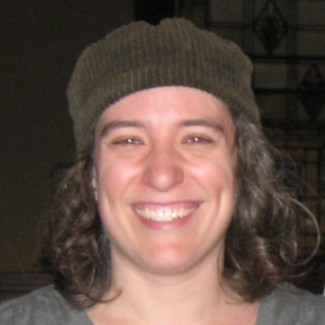 There was a paper cup sitting on the back of the water fountain. To most people, it was litter. To me, it was a sign that there were other Orthodox or traditionally observant Jews at the JOIN for Justice National Summit.
There was a paper cup sitting on the back of the water fountain. To most people, it was litter. To me, it was a sign that there were other Orthodox or traditionally observant Jews at the JOIN for Justice National Summit.
It was time to eat and I’d picked up one of the boxes containing lunch, all of which were sealed with a sticker identifying them as strictly kosher. But traditional halacha requires hand-washing with a blessing before saying ha-motzi, which I’d be doing before eating my sandwich. So I’d gone with a water bottle to the drinking fountain to wash my hands. And that’s where I saw the cup, left by someone else who followed the same rules.
When I think back on the conference, that moment is only one of many where I felt connected to other attendees. On the surface, these moments look very different from each other, and they felt different as well. Unlike the hand-washing situation, there were times when I felt frustrated, challenged, and overwhelmed… but I realized upon reflection that I needed to incorporate what had been said or what had happened into my own understanding.
Community isn’t about always feeling comfortable.
There was the session for clergy that I asked to attend so I could listen. The rabbis were talking about the challenge of trying to use organizing techniques to strengthen synagogues and other institutions, which tend to have entrenched cultures that resist change. And the main advice I heard was to be patient, to accept that it can take several years to be trusted as part of that culture, before which it can be difficult or impossible to make a significant difference.
Be patient?? I was frustrated. Organizing is a model that uses “the action” as one of its main tools! I had to spend time thinking over the difference between patience and apathy, and about the idea of doing work that you know will be less than ideal while you build up the people and systems that will make better work possible.
Then there was the session on meditation and using quiet practices to stay focused and centered enough to continue emotionally trying efforts. Another participant spoke up when there was room for questions. “Why are we talking so much?” she demanded. “If this is a session on silence, why are we talking? I’m tired of all this talking. I’m even tired of hearing myself talk!” (Similarly, in a discussion about engaging young adults, an acquaintance of mine asked “What songs should we sing?” in an attempt to remind us that there are many ways to feel connected and they don’t all involve talking.)
Stop changing the subject! I thought to myself. What’s being said is important! And it wasn’t until later on that I remembered all the times I’ve complained that there should be more singing in synagogue, that meetings shouldn’t only be about rushing through the agenda, that there needs to be room for people to sing and be quiet and laugh and connect.
The conference pushed me to consider what those connections should look like and encouraged me to use the relational meeting as the building block for creating that community. I haven’t stopped thinking about it since I got home.
Melissa Nunes-Harwitt is a Jewish educator and activist, and she is a graduate of Yale University and the Drisha Institute for Jewish Studies in Manhattan.






